MercoPress. South Atlantic News Agency
Tag: commodities
-
Saturday, March 9th 2024 - 09:04 UTC
Brazil leads the world in exports of seven food commodities
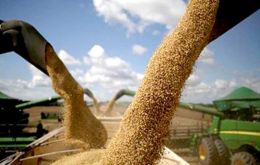
Brazil has become the global leader in the export of at least seven food commodities, following on a report distributed by BTG Pactual to its clients this week.
-
Wednesday, November 25th 2015 - 08:33 UTC
Commodities prices hovering at 13-year lows; metals suffered the most
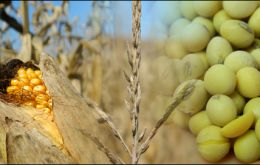
Commodities hit 13-year lows on Monday as metals markets crashed but a steady close in oil and higher grains markets helped a key sector benchmark settle off the day's trough. Copper and nickel prices fell to multi-year lows, forcing the Thomson Reuters/Core Commodity CRB Index to its lowest levels since November 2002.
-
Friday, August 21st 2015 - 07:41 UTC
Rousseff admits a year of recession because of 'massive economic difficulties”

A slump in commodity markets will burden the global economy for some time to come, Brazilian President Dilma Rousseff told Germany's Handelsblatt business daily, adding she hoped the Brazilian economy would pick up in a year.
-
Monday, May 5th 2014 - 06:24 UTC
“Least difficult phase of economic growth is now over”, IMF top official tells Latam

IMF Director for the Western Hemisphere Department Alejandro Werner has once again called on Latin America to embark upon economic reforms, claiming that the “least difficult” phase of economic growth is now over.
-
Tuesday, July 30th 2013 - 03:50 UTC
“The party is over” for Latam countries China-dependent on their exports
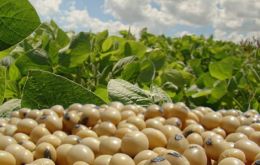
“The party is over” and Latinamerican countries should be concerned since the Chinese economy is slowing down, apparently entering a low growth period and many in the region have become notoriously ‘China-dependent’ after a decade of strong expanding sustained bilateral relations.
-
Tuesday, March 5th 2013 - 05:18 UTC
Brazil’s “competitiveness cliff” and commodities dependency exposed in World Bank report

Brazil is not only the biggest country in Latinamerica but also has the largest economy and expects to play a leading role in the global economy in the near future, however a report from the World Bank is not so enthusiastic and points out to a series of challenges the country must address if it wishes to effectively become a super star.
-
Saturday, September 1st 2012 - 04:05 UTC
Brazilian economy commodities dependency en route to its worst year since 2009

The Brazilian economy expanded 0.4% in the second quarter of the year over the previous three months, and 0.5% over the same period a year ago, according to the latest release from the country’s official Brazilian Geography and Statistics Institute, IBGE.
-
Thursday, August 23rd 2012 - 05:33 UTC
A billion dollars trade surplus for Argentina in July; Mercosur main partner
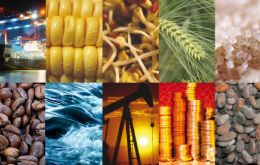
Argentina’s trade surplus reached 1.014 billion dollars in July, which is 54% higher than the same month a year ago. Exports totalled 7.4 billion and imports 6.37bn according to the latest release from the official stats office, Indec.
-
Saturday, August 11th 2012 - 11:03 UTC
China only interested in commodities, not in products that reach supermarkets

Trade with China for Argentina has great opportunities but also great threats because the Asian giant is only interested in produce with no added value, warned the head of Argentina’s Industrial Union, Ignacio De Mendiguren.
-
Wednesday, July 11th 2012 - 22:09 UTC
OECD/FAO anticipate promising future for farm-commodity prices
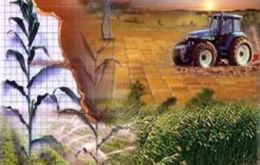
World farm commodity prices will edge higher in the next decade, and oilseeds are set to outperform wheat and other cereals, both trends fuelled by demand in emerging economies, the OECD said on Wednesday, presenting a joint report with the UN's food agency FAO.
